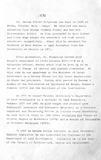/ library resources
Showing items 28 through 36 of 5340.The current land administration system in Pakistan aims at land revenue assessment and tax collection for the fiscal purposes.
Agriculture is the backbone of Pakistan’s economy. It employs 45% of the labor force, contributes 21.4% to the gross domestic product and provides food to more than 180 million people of the country.
The lack of land ownership can discourage agricultural technology adoption, yet there is scarce evidence of the impact of land rental contracts on the adoption of improved crop varieties in developing countries.
The novelty of this study lies in the analyses of legislation concerning land use policies by examining the specific boundary between land ownership and land take.
Does ownership status of agricultural land determine farmers’ soil use behaviour? Why (not)? We investigate this old question using multiple methods and data. We apply econometric analysis to plot-level data to determine whether planting decisions differ between rented and owned plots.
It is generally acknowledged that
insecure and incomplete property rights have large effects on
the use and management of watershed resources.
The standard policy response to this problem is
to privatize farm land, declare riverine areas
The various legal, political, economic and social perspectives that have influenced the land reform discourse in Kenya are examined.
Pagination
Land Library Search
Through our robust search engine, you can search for any item of the over 73,000 highly curated resources in the Land Library.
If you would like to find an overview of what is possible, feel free to peruse the Search Guide.






